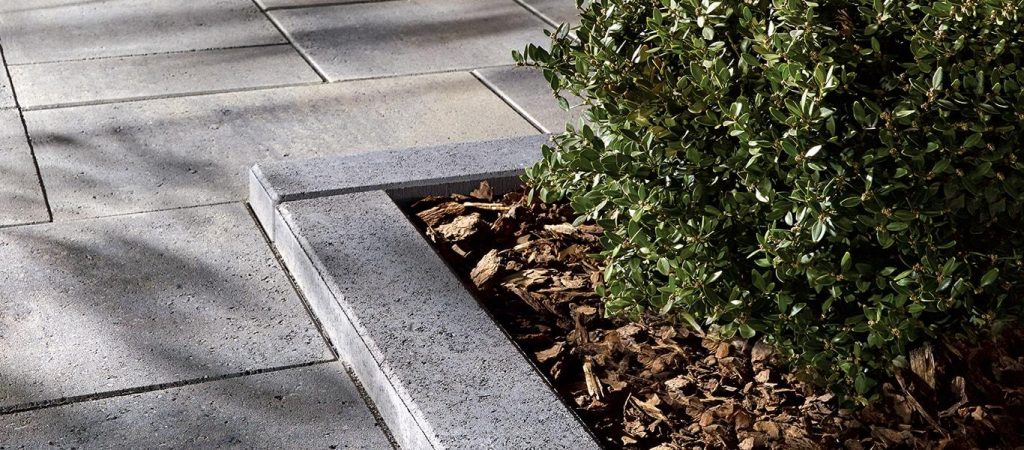We recommend is the use of pavers — durable blocks that come in a variety of shapes and are used to build walkways, driveways, and patios (and decrease the amount of grass in your yard). Although they come in a variety of materials, concrete pavers provide several advantages.

1: Versatility
“The wide variety of pavers means you can create patterns in your walkway or driveways. Some pavers have smooth edges, while others have a textured surface. When creating a walkway or patio with pavers, you can cut the pavers to fit your pattern using a wet saw with a diamond blade.”
2: Cost
“The manufacturing process makes pavers less costly than poured concrete or asphalt. Concrete pavers cost even less than comparable pavers made of sandstone, granite or clay, and are more durable, especially when used in driveways. The cost of repairing pavers is much less than concrete because you typically only remove the damaged pieces and reset new pavers in their place. When you consider many pavers have a life expectancy of more than 30 years, they are an economical choice.”
3: Strength
“Concrete pavers are made in a mold the packs the aggregate, cement and sand much tighter than you can ever achieve with poured concrete. This means the pavers are sturdier than poured concrete. Concrete pavers expand and contract with the seasons, but do not crack like slabs of concrete. Joints between the pavers allow for any seasonal or seismic movement. It’s not necessary to add reinforcement material or rebar under pavers to strengthen them.”
4: Low Maintenance
“Routine maintenance includes regular sweeping or rinsing with a garden hose. If the sand in the joints rinses out, you simply sweep more sand into the joints. Any weeds that grow between the pavers are easy to remove. If necessary, you can pull up a paver to expose a weed’s roots to destroy it. Heavy rains may occasionally cause the sand bed under the pavers to shift, which causes the patio or walk to be uneven. Leveling the sand underneath the pavers and compacting it prevents the problem from happening again.”
5: Weather Resistance
“Concrete pavers are ready to use as a driveway or patio as soon as you set them, unlike concrete, which much cure for several days before you can use it. Pavers have a rough surface that makes them naturally slip-resistant. Deicing salts don’t affect the surface of the pavers. You can shovel or plow snow from them. They also won’t crack in a minor earthquake, as poured concrete does.”
- We guarantee that our pavers are non-skid, non-slip and endure even the harshest conditions – from shifting soil to extreme hot and cold temperatures – without cracking or crumbling.
- We use sand-jointed interlocking pavers to ensure they stay beautiful for years to come and don’t crack.
- Our skilled and experienced workers are equipped with deep understanding and knowledge about practical details when it comes to driveways, outdoor living, and interlocking pavers.
- We get our materials from trusted, certified and recognized retailers to ensure quality and longevity of your property.
- We provide solutions regardless of your budget, size of the property, kind of property and location. We want to help you reduce cost and pain when it comes to installing pavers or redoing your driveway.
- We are best known for being proactive, cost-efficient and easy to work with.

